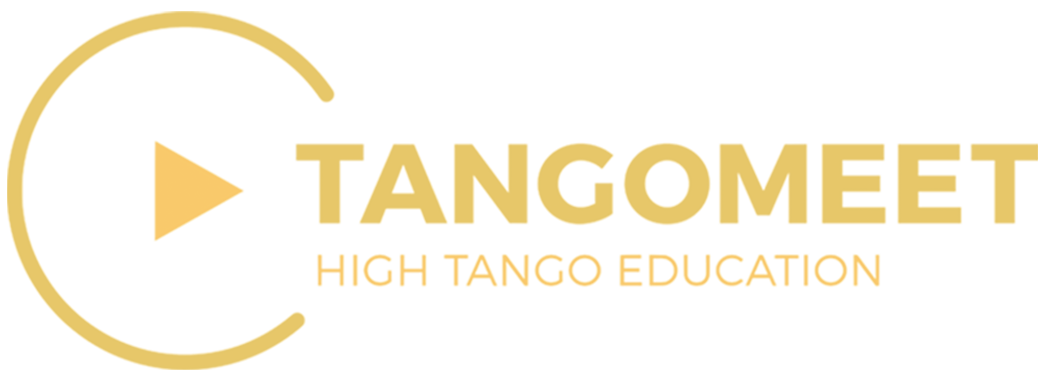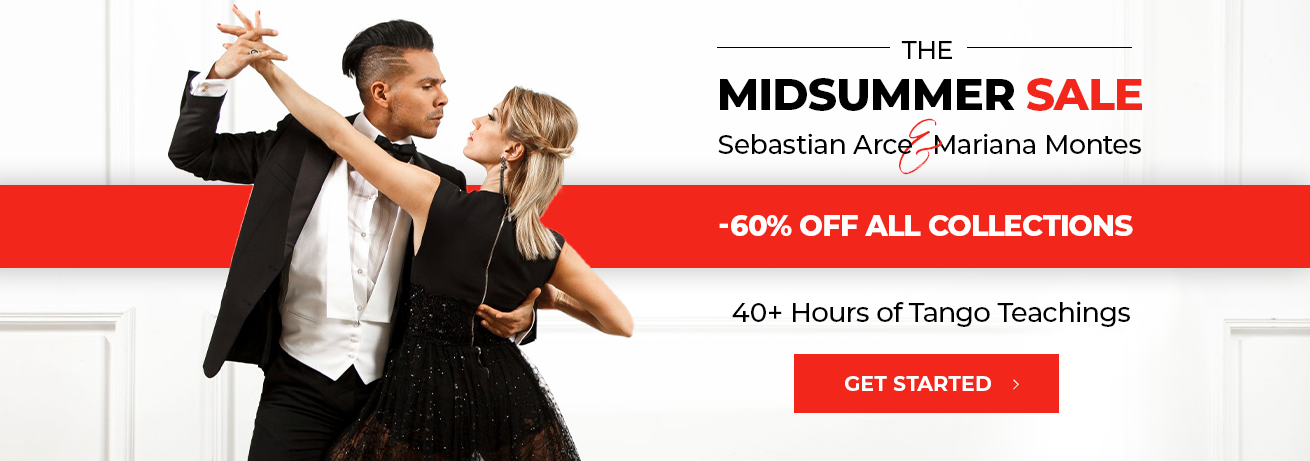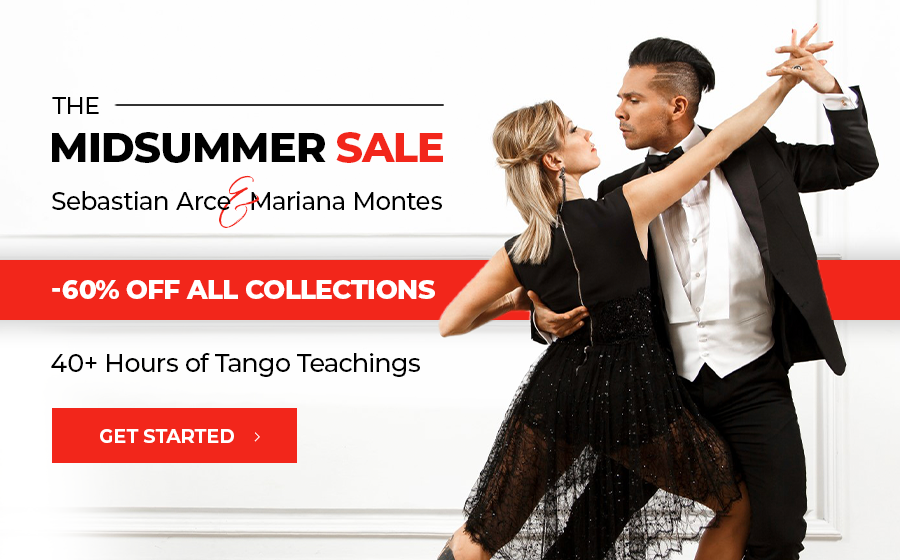Individual Technique. Tango Technique for Followers and Leaders
After teaching for many years ladies technique, Carolina started to realize that technique is only one. Everybody needs to learn technique. So this is a collection for tango dancers who were looking for a way to know themselves better. In a technique lesson, when you’re alone with your body and trying to reach balance after every step, being conscious of the way you move every part of your body, you realize what you can really give when stepping into the connection with your dance partner.
Recommended study time for this collection is 7 weeks.
Walking Elements 1
A lesson that will teach you how to always be ready. General technique for the front and side steps + a cherry on top: advanced tips for advanced dancers. Less advanced ones, don’t ignore them either!
Walking Elements 2
This is a very special, unique lesson on walking, that will reveal to you how to become more aware of your back - a generally ignored, but extremely important part of our body, for achieving the kind of connection we all aim for. Plus, as we always say, the beauty is in the details.
The Technique of Pivots
Learn how to generate pivots from different parts of your body, in order to be prepared for all dance situations and for all dance styles. The exercises in this class are quite unique due to the accessories you’ll be using. Don’t worry, you can get them in any sports shop. Enjoy!
Music on and Practice Everything we’ve Learned until Now!
Every time you dance, a bit more is added to your expertise as a dancer. Your body's muscles have memory. When you do something over and over again, they remember. So, take advantage of every moment available to you and dance! Even if you’re doing it by yourself in your practice room.
Get Technical about your Ornaments 2
We continue with the science of planeo and lapiz. planeo can be performed in the front, side and back steps. In this lesson you’ll get acquainted with the technique of planeo, plus tips about how to keep your balance while doing it. As of the lapiz, it’s a movement that the leader can lead to you or you can make it as an ornament. If it’s an ornament you handle it completely and you have a few different options to perform it.
Carolina Bonaventura’s Tango Dictionary. Part 1
Leaders and followers, dancers and teachers this is pure gold – a tango dictionary in two parts. The first part will get you acquainted with the meaning and form of the fundamental concepts in tango, like: zero position, walking, standing leg and free leg, the muscular tone, functions of various body parts in tango. You can use this dictionary to profoundly understand for yourself the whats, the whys and the hows of tango; or to inspire your teaching.
Carolina Bonaventura’s Tango Dictionary. Part 2
The second part of Carolina’s dictionary tackles concepts like the meaning of the hips in tango, vertical and horizontal dissociation, lapiz, enrosque, boleo, the frame. It’s a captivating lesson and you won’t see this kind of approach to teaching very often. Teachers, incorporate these learnings in your tango teaching and your students will see tango from a different, more complete perspective. And, oh, how grateful they will be to you for this!
Body Preparation Exercises
In this class, you’ll learn how to warm up, train and relax your feet. It’s a ritual every tango dancer needs like air and water. The more flexible your feet, the better contact with the floor you will have and we can’t say enough how important it is to be grounded when dancing tango. Then some exercises that will help you understand and feel, yes feel, the role of the free and the standing leg in tango.
Collection Review with Music
Every time you dance, a bit more is added to your expertise as a dancer. Your body's muscles have memory. When you do something over and over again, they remember. So, take advantage of every moment available to you and dance! Even if you’re doing it by yourself in your practice room.
Her Own Way of Doing It
In Carolina’s opinion “when you are a teacher and you’re teaching a movement you have to be neutral in the way you show it, so that the student can really decode the movement, the pure movement. Later, in one moment, you can say: Ok, I will dance now and I will put my spirit there. This is my way of doing this movement, the one I have taught in a neutral way before.” So in this video you will see her own way of doing it, the way of Carolina Bonaventura the dancer.
“Dance is the hidden language of the soul” Martha Graham
Dance! Dance! “Dance is the hidden language of the soul” Martha Graham
Showcasing the Leader’s Part
A comprehensive review with demonstrations, of all the concepts Carolina has been teaching throughout the entire collection of lessons. This time she is especially addressing leaders. But as you know, you can’t properly figure out the plot by only reading half of the book. So, ladies, please don’t skip this lesson, either. It’s gold for you, too!
“The dance is a poem of which each movement is a word” ? Mata Hari
“The dance is a poem of which each movement is a word” ? Mata Hari. And we are dance poets. What a bliss!
ADD TO SHOPPING CART
Individual Technique. Tango Technique for Followers and Leaders
(Instant, lifetime streaming access)SEE HOW SATISFIED OUR CLIENTS CAN BE!
Over 3.000 satisfied customers

After so many years dancing Tango and wasting money taking group classes everywhere and every time I had the chance, I discovered Tangomeet and took all the clases with Mr Sebastian Arce and the beautiful Mariana and no regrets. It has been the best thing I had ever done for my studies of tango. It is such a well thought program that will do for you miracles in the way you dance Tango
Ariel David

"Needless to say we are extremely satisfied with the results."
- Carlynn I.

Best Tango learning/teaching material so far. Great after sales service and always get back to your questions very quickly. Love it !
Shirley Yao


